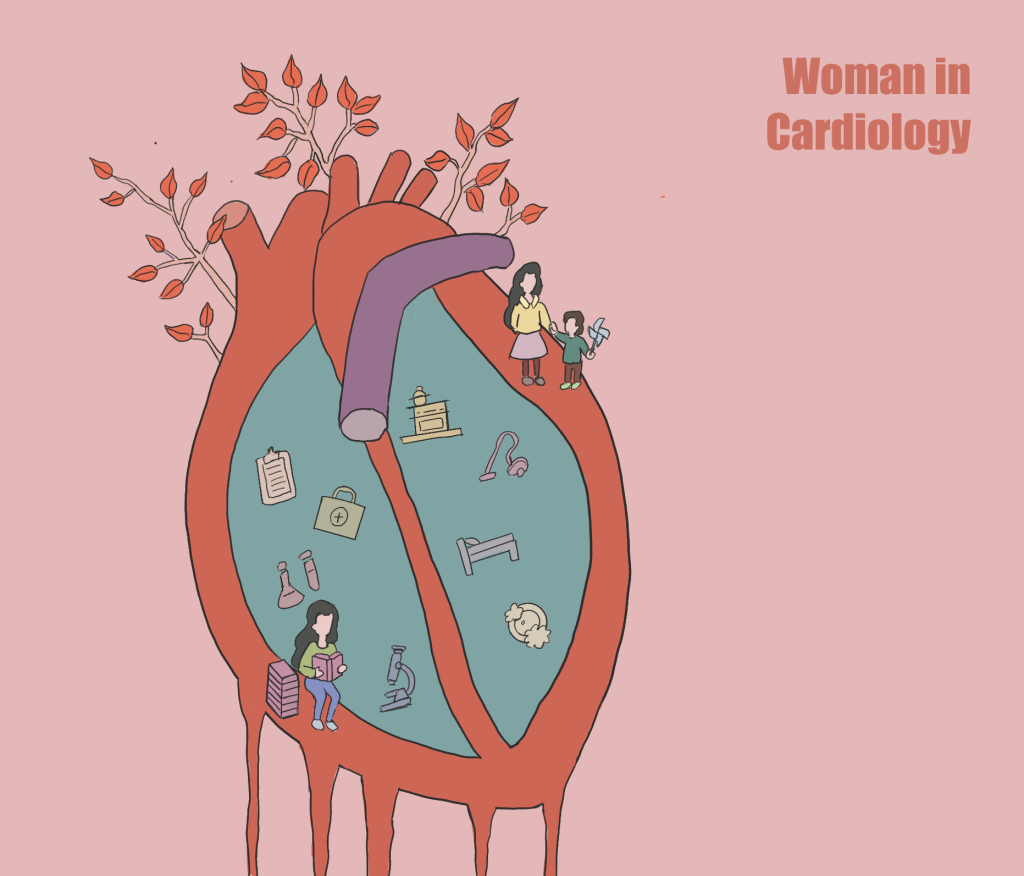The BHF Centre is funding a number of peer-reviewed research proposals and pump-priming pilot projects, with the objectives of promoting nascent collaboration and supporting the research leaders of the future.
2024
The Imperial BHF Centre recently had a pump priming call in October 2024. Projects that had to be highly innovative and should have generated preliminary data to strengthen a grant or fellowship application.
Projects had to be cardiovascular in nature and relevant to the Centre’s focus and had to be cutting-edge where pilot data will substantially enhance the likelihood of securing an external grant award.
The ECR projects awarded were:
Longitudinal artificial intelligence-enhanced remote monitoring platform for personalised risk prediction
Dr Arunashis Sau
New co-culture system to dissect neuro-vascular interactions in vitro
Dr Eliza Duregotti
Spatial transcriptomics informed prediction of treatment response in dilated cardiomyopathy
Dr Lucas Mach
Deciphering vasculature architecture using multiplex imaging
Dr Regis Joulia
Utilising transcriptional isoforms to investigate cardiac cellular heterogeneity in disease
Dr Sean Zheng
Single cell multiplex assay of microRNA and protein expressed in primary endothelial colony forming cells (ECFCs)
Dr Vanessa Ho
Sex-specific clustering of cardiovascular risk factors in the presence or absence of comorbidities, and risk of future major cardiovascular events
Dr Anne Ioannides
2023
Spatial multiomics and in vitro modelling of Titin cardiomyopathy
Investigators: Dr Michela Noseda, Professor James Ware, Dr Sam Barnett
Optimisation of state-of-the-art technique for endothelial cell stiffness measurements
Investigators: Professor Anna Randi, Professor Julia Gorelik
Vascular stiffening of the arterial wall in aging is a widely recognised factor in the development of cardiovascular disease (CVD); however, less is known about the role of endothelial stiffness in vascular dysfunction. During ageing, loss of endothelial resilience is central to the development of CVDs and is associated with increased endothelial activation; whether this is associated with increased endothelial stiffness in unknown. We will assess the effect that loss of endothelial resilience pathways and vascular ageing have on vascular stiffness of endothelial cells (ECs) by mechano-scanning ion-conductance microscopy. We will optimise protocols according to EC types (HUVEC, aortic and cardiac EC, endothelial colony forming cells [ECFC] from healthy donors and CVD patients). EC will be profiled by western blotting and immunofluorescence for markers of activation and senescence. Resilience pathways will be manipulated by siRNA or adenoviral expression of key regulators. We will measure stiffness of ECs in 2D cultures; transversal stiffness of cells (Young’s modulus, YM) will be measured using mechano-scanning ion-conductance microscopy (Mechano-SICM), a non-contact method that simultaneously generates topographical and YM maps of the cell membrane. These studies will form the basis for future investigation on the effect of modulating EC resilience pathways on endothelial stiffness.
Developing AI-enhanced ECG models for risk stratification and remote monitoring in pulmonary hypertension
Investigators: Dr Fu Siong Ng, Professor Allan Lawrie, Dr Chris Rhodes, Dr Arunashis Sau
This project aims to build on a recently developed artificial intelligence-enhanced ECG (AI-ECG) model to predict mortality risk in Pulmonary Arterial Hypertension (PAH). With a significant mortality rate, PAH requires risk stratification to determine the treatment strategies. Our hypothesis is that AI-ECG could augment existing risk prediction tools in PAH. The approach will involve fine-tuning the AI-ECG model using patient data from The Beth Israel Deaconess Medical Center (n = ~2000 subjects, Boston, USA). We will then evaluate the model in the ASPIRE Registry cohort (n = ~1000 subjects, Sheffield Pulmonary Vascular Disease Unit, UK) and Vanderbilt University Medical Center cohorts (Nashville, USA) and integrate the AI-ECG model with existing risk stratification algorithms. Finally, we aim to develop single-lead models for wearable devices and in the future incorporate plasma proteomics alongside AI-ECG and conventional risk stratification algorithms.
2020
Detecting and monitoring heart failure with handheld ultrasound
Investigator: Peter Weinberg
The project concerns the development of new methods for diagnosing and monitoring heart failure based on ultrasound monitoring of pulse waves in arteries. At present, definitive diagnosis requires an echocardiogram and takes place in a specialist centre. Echocardiograms are difficult to interpret; prolonged training is required and even then there is subjectivity about the results. The methods we are developing could be used by non-specialists, and in the community as well as in the clinic. They return absolute quantitative results and do not require interpretation of images.
Development of the Imperial Implantable Electro-Mechanical Coupling Loop Recorder
Investigators: Daniel Keene and Zac Whinnett
Implantable Cardioverter Defibrillators (ICDs) save lives. Unfortunately though, ~40% of the shocks they deliver are unnecessary. This is because ICD decision-making algorithms are limited, relying solely upon detected electrogram signals to diagnose potential ventricular arrhythmias.
These shocks are distressing, increase mortality, and may limit more systematic device utilisation. We have developed and patented a novel ICD decision-making algorithm, which for the first time combines synchronised electrogram with perfusion signals to create a personalised and reliable indicator of whether a shock is truly required or not. This project will build and test a proof-of-concept device which can implement our new method.
Finite element analysis of enlarged thoracic aortas: using aortic wall strain to predict aortic growth and failure with a machine learning approach
Investigator: Thanos Athanasiou
This project focuses on thoracic aortic aneurysms, which silently afflict patients who have a risk of sudden death from type A aortic dissection. In a previous project, we conducted comprehensive computational fluid dynamic (CFD) assessment of TAA (using data from 4D flow MRI), allowing us to generate detailed wall shear stress (WSS) assessment. In the current project, we are matching 4D flow MRI data and material properties from explanted aneurysm tissue to build a finite element model to map out aortic wall stress. This will be incorporated into a machine learning algorithm to a) rapidly predict TAA wall stress from routine imaging and b) predict aneurysm expansion and prognosis from serial imaging. This will provide a more accurate prediction of TAA expansion and rupture/dissection compared to current standards.
Phenotyping cardiovascular disease, disease traits and death with metabolomics, linked population-based data and machine learning
Investigator: Majid Ezzati
As acute myocardial infarction (AMI) events are shifted to older ages and survival from AMI improves, multi-morbidity is increasingly common in hospitalised AMI patients. The aim of this project to understand the patterns of multi-morbidity in AMI patients in different parts of the country, and evaluate how it contributes to geographical variations in survival and mortality from AMI.
Analysis of molecular signatures of cardiovascular disease by a point of care bioanalytical platform that combines paper-based assay technology with a mobile phone readout
Investigator: Molly Stevens
The objective of this project is to develop and validate a highly sensitive nanoparticle-based point-of-care diagnostic platform to detect molecular signatures associated with cardiovascular disease. The simultaneous detection of biomarkers will be read through a smartphone camera and processed by machine learning algorithms to facilitate clinical decision-making and patient stratification.
Integrating imaging and genetics to identify fundamental determinants of cardiovascular form and function in health and disease
Investigator: James Ware
--------------------------------------------------------------------------------------------------------------
COVID-19 projects
Collaborative research on cardiovascular medicine and COVID-19 using high-resolution clinical data
Investigator: Jamil Mayet
COVID-19 Human Population SusceptibiliTY COHORT Network (COVIDITY-COHORT)
Investigators: Ioanna Tsoulaki and Paul Elliott
PHOSP-COVID - Post-Covid-19 follow up cohort
Investigators: Edwin Chilvers and Luke Howard
Developing a screen to inhibit endothelial pro-thrombotic switch during severe COVID19 infection
Investigator: Anna Randi
Studies of Ang(1-7) and analogues to reduce the vascular complications of COVID-19
Investigators: David Owen, Katerina Pollock and Joseph Boyle
Imaging ACE2 dimerization – target for Sars-Cov2
Investigator: Paul French
General enquiries
BHF Centre of Research Excellence
ICTEM Building
Hammersmith Campus
Du Cane Road
London W12 0NN
BHF Centre Manager
Mrs Jaya Rajamanie
j.rajamanie@imperial.ac.uk
+44 (0)20 7594 8062
Follow us on Twitter
@BHFCoREImperial


